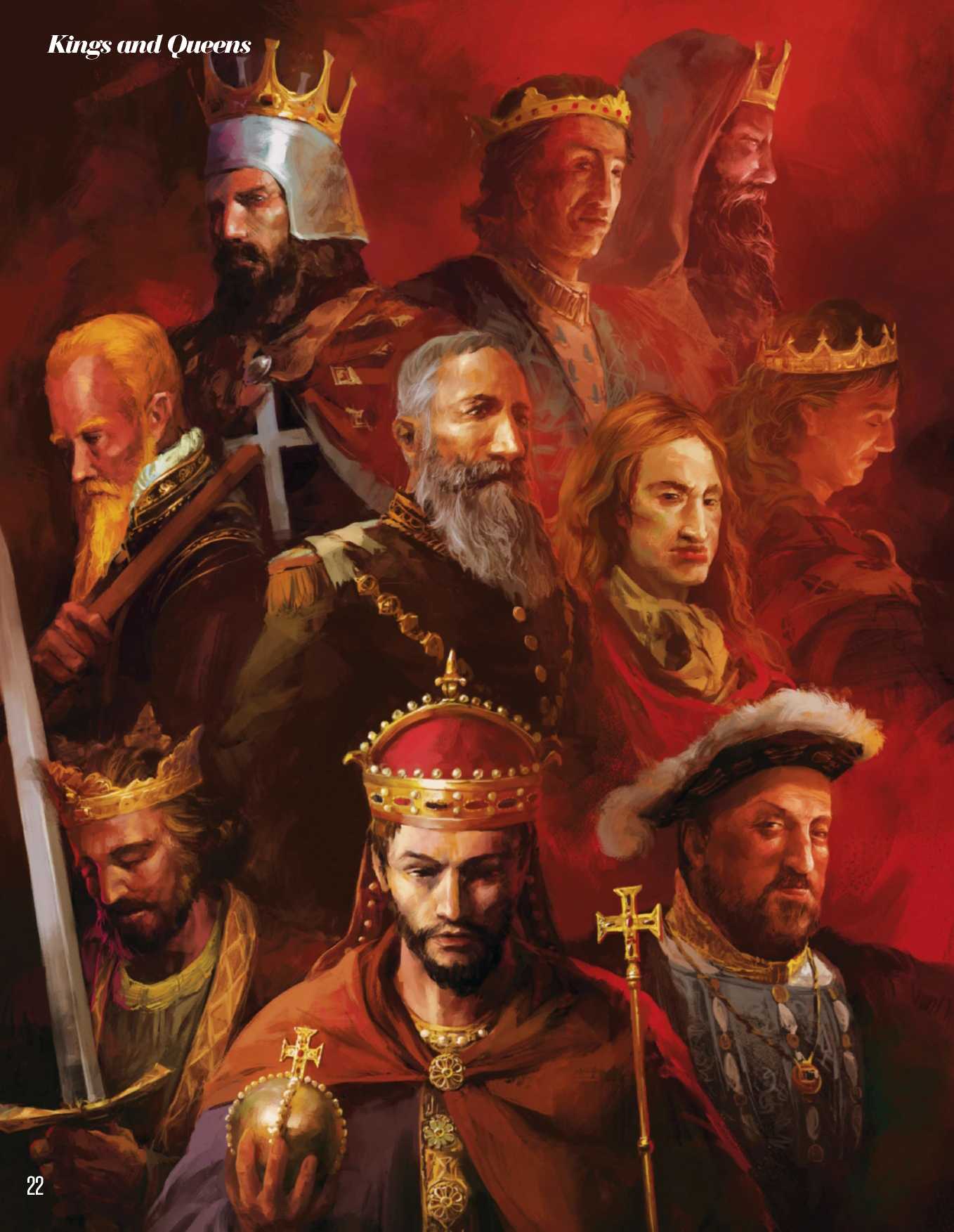Darius took power through violence s
And cunning. Once on the throne, i it was largely through this second - i attribute that he turned Persia into a i true empire. He divided his kingdom J into 'satrapies', ordered the construction i of roads, promoted trade, ordered a i
Single currency and official language |
And encouraged religious tolerance. ¦
Under his guidance the Persian Empire i became a shining beacon of prosperity ; and enlightenment. «


Murderous
Kings
A blood-curdling countdown of history's deadliest monarchs
In this day and age it's quite difficult to imagine the sheer power that kings and queens once wielded over their subjects. In many ways these monarchs were more similar to modern dictators than the rulers that we know today. Murder was often a means to a political end, while crimes of passion would rarely be met with any immediate consequences.
Although the kings had ultimate power, it was a power they were forced to fight for - often using fear, war and murder, among other methods, to stay at the top. The position of king was a precarious one and, driven by this fact and an unhealthy dose of paranoia, certain monarchs left a bloody trail through history.
But beyond paranoia, what drove them to such bloodshed? Several of these kings earned their place on this list with their military campaigns. War was a show of strength, a display of dominance. With an almost-constant state of conflict, territories were lost and won with great frequency, which, of course, meant that they had to be reclaimed. The glory of a kingdom was not just determined by its size necessarily, but by a king's unwavering belief that the lands at stake belonged by right to the throne. Look at Edward I's brutal campaigns
In Wales and Scotland, or Charles II of Navarre's ludicrous notions of what belonged to him - both of whom feature in this roundup of deadly royals.
Murder was often the simplest way to ensure that anyone plotting against the king was removed. Even with the introduction of the Magna Carta in England in 1215 and the emergence of Parliament, the monarch's essentially free rein to end the lives of their subjects remained. Flimsy evidence could be put forward to prove a case for treason and conspiring against the monarch, as Henry VIII demonstrated on several occasions. Meanwhile, with the whole country watching, any hint of rebellion would have to be squashed quickly and brutally, as Louis I of Aquitaine did to great effect.
In other cases, the reason behind a king's bloodthirsty nature would now be attributed to some form of mental illness. Purity of the bloodline comes with a price, as lineages would abruptly end with offspring suffering from deformities, congenital illnesses and insanity.
Whether through violent fits of rage or cold calculation, these ten kings ensured that the pages of history books dedicated to them were written in blood, but which of them takes the crown as the deadliest?





 World History
World History









